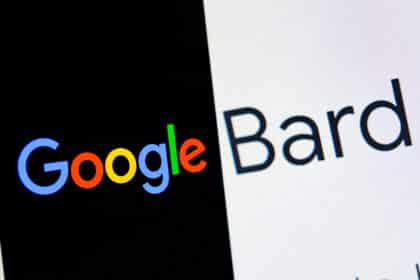Currently, Google Bard is available to a few select customers in the US and UK. As per Google, Bard is “an early experiment … intended to help people boost their productivity, accelerate their ideas, and fuel their curiosity”
On Tuesday, March 21, tech giant Google opened access to its AI chatbot tool Bard, which directly competes with OpenAI’s ChatGPT. However, this is limited access and Bard will be initially available only to selected users in the US and UK, who can join a waitlist at bard.google.com.
Similar to ChatGPT, Bard will allow users to outline and write essay drafts and provide users with ideas for almost anything and everything. Many across the world have already tried their hands with ChatGPT and witnessed how effectively these AI chatbots function.
However, Google stressed that Bard won’t be a replacement for its search engine. Instead, Bard will work as a “compliment to search” working as an AI chatbot that users can play with ideas, generate drafts or just chat about life.
In the blog posts, Bard project leads – Sissie Hsiao and Eli Collins – said that Google plans to “thoughtfully” add large language models offering search capabilities “in a deeper way” at a later time. The two also described Bard as “an early experiment … intended to help people boost their productivity, accelerate their ideas, and fuel their curiosity” while characterizing the AI chatbot as a product that lets users “collaborate with generative AI”.
Google Joins the Race of Building AI Tools with Its Bard
Every tech giant including Google, Microsoft, and Facebook has been working to develop and deploy AI-powered tools. Furthermore, Google recently announced that it is working on introducing AI capabilities to its productivity tools such as Gmail, Docs, and Sheets. Shortly after, Microsoft also announced its upgrade to its productivity tools.
Last month, Google unveiled the Bard AI chatbot in a demo, however, faced flak for providing an inaccurate response to a question about a telescope. On the same day, shares of Google’s parent company Alphabet (NASDAQ: GOOGL) tanked by a staggering 7.7% wiping out more than $100 billion from the company’s valuations.
Similar to ChatGPT, Google’s Bard is built on a large language model. These models have been fed with massive amounts of data to generate compelling responses to user prompts.
However, in Tuesday’s blog post, Google said that AI tools are “not without their faults”. Similar to ChatGPT, Google’s Bard has a prominent disclaimer underneath the chat box that states:
“Bard may display inaccurate or offensive information that doesn’t represent Google’s views” – the AI equivalent of “abandon trust, all ye who type here.”
Google added that it would continue to use human feedback to improve its systems while adding “guardrails, like capping the number of exchanges in a dialogue, to try to keep interactions helpful and on topic”.
next